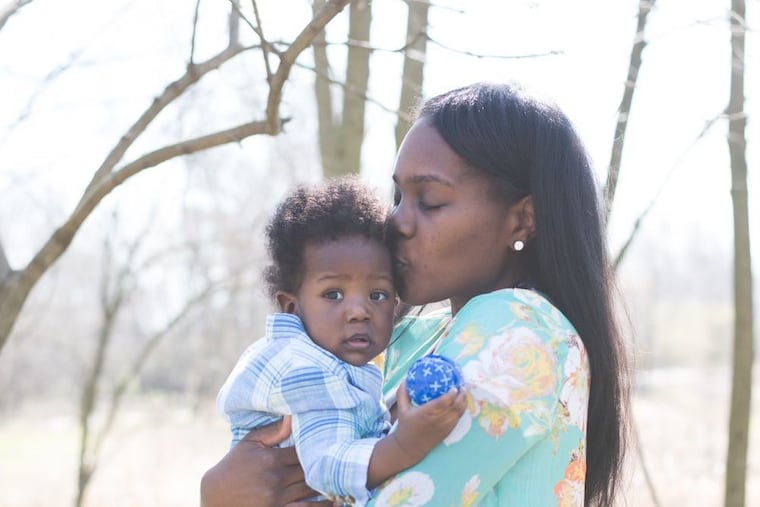Like many Black women, I faced implicit bias during childbirth — but help is on the way | Expert Opinion
The Build Back Better Act includes funding for implicit bias education and programs that help diversify the healthcare field, which is desperately needed.

“In the United States of America, in the 21st century, being pregnant and giving birth should not carry such great risk.”
Last week, I watched as Vice President Kamala Harris gave her opening remarks at the first-ever Maternal Health Day of Action, where leaders and advocates discussed the maternal health crisis and the policies in the Build Back Better Act that could help solve it. “Women in our nation are dying before, during, and after childbirth,” she said. “Women in our nation are dying at a higher rate than any other developed nation in our world.”
I know this.
I know this as a health-care provider with expertise in complex pregnancies.
And I know this as a Black woman who experienced implicit bias during childbirth that put my life and the life of my unborn child at risk.
I am a board-certified women’s health nurse practitioner (WHNP-BC). I am educated at the doctoral level to provide women’s and gender-related care throughout the lifespan. I’ve been caring for birthing people, mostly in underserved areas, for more than 10 years.
» READ MORE: For too many Black women, pregnancy is fatal. Temple thinks these birth workers could help.
Maternal health is my field, so I wasn’t surprised by the statistics in the vice president’s remarks. Black women are more than three times as likely to die from pregnancy-related complications as white women. Native American women – more than twice as likely. And pregnant people who live in rural communities are about 60% more likely to die before, during, or after birth than people in urban communities. This is a complex challenge, deeply rooted in the social determinants of health.
The Build Back Better Act works to address the social determinants that put moms’ lives at risk. It includes funding for programs focused on access to nutritious food and improvements to technology to reach moms in isolated areas.
My opinion on these initiatives is more than just professional. It’s personal.
When I was pregnant with my son, I was worried about my family history of preeclampsia – a pregnancy-related complication that can endanger the lives of the mother and baby. I told my health-care providers about my concerns, but I felt brushed off. “Oh, you’ll be fine,” they told me.
I wasn’t. At my 38-week appointment, I was diagnosed with severe preeclampsia.
I stayed in the hospital after giving birth. At one point, I broke out into a cold sweat. Alarms in my room were going off … but no one came to check on me. My husband said to me: “You don’t look good. Why isn’t anybody coming?” Finally, a nurse came in and asked if anyone had been in.
My care at the hospital did eventually improve, but only because someone amplified my voice. A former student of mine, a white woman, happened to work on the unit and became my advocate. After she told other nurses and providers that I was a highly trained nurse and a professor at a university, I noticed that people treated me differently and the quality of my care changed.
Implicit bias is something everyone has. It’s natural and unavoidable. But as health-care providers, we have a duty to guard against it and understand how it can harm patients. The Build Back Better Act includes funding for implicit bias education and programs that help diversify the health-care field – and that includes every member of the maternal health team. Women’s health nurse practitioners have a role in solving the maternal health crisis. I hope every pregnant and postpartum person has one on their obstetric team, just as I did.
Vice President Harris’ event was full of voices of patients and providers, like me, who see these issues every day. We understand that there is no single solution to our nation’s maternal health crisis. We need to address it from every possible angle, and that is what the Build Back Better Act does.
Just as my former student advocated for me, lawmakers who support the Build Back Better Act are advocating for pregnant people — especially women of color. They are investing in the health of all moms and babies. They may even be saving their lives.
Shawana Moore is a Philadelphia-based, board-certified women’s health nurse practitioner. She is the rising chair of the board of directors of the National Association of Nurse Practitioners in Women’s Health and an assistant professor and the director of the Women’s Health-Gender Related Nurse Practitioner Program at Thomas Jefferson University.